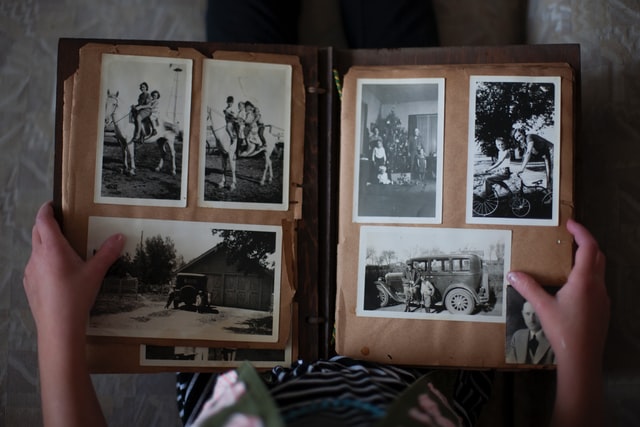In our post about the Serbian slang, we already mentioned that the Serbian language is extremely passionate and expressive. Believe it or not, Serbian swear words also contribute to this.
That’s why it should be noted right at the beginning that they are not always used when you want to offend someone.
Well, at least it’s not the only case.
When are Serbian Swear Words Used?
Serbian swear words are most often used to emphasize something or as substitutes for crutch words. They have become part of everyday speech.
This does not mean that it is okay to use them everywhere and in every place, of course.
They are most often used in informal speech between old acquaintances where it is clear that their goal is not to insult someone.

Also, some of them are not always addressed to the person we are talking to directly; they are rather just part of the conversation. Yet, some swear words can be directed in a hostile manner.
But let’s see how it looks through examples and this will be much clearer!
1. Jebiga meaning
Jebiga (or abbreviated and slightly more polite in writing: Jbg) is one of the most common Serbian swear words, so there is a high chance that you will hear it in a typical Serbian conversation.
Jebiga in Serbian means “F*ck it” and it is mainly used in the following situations:
#1 When we can’t fix something or we did something wrong but it’s not too big a mistake:
– Ej, nije trebalo da kupuješ nove slušalice. Mogao sam da ti dam svoje. (= Hey, you shouldn’t have bought new headphones. I could have given you mine.)
– E, jebiga, već sam ih kupio. (= Well, f*ck it, I already bought them.)
Or:
– Nije trebalo da kupim slušalice. Nisam znao da imaš dva para. (= Oh, I shouldn’t have bought headphones. I didn’t know you had two pairs.)
– E jbg, trebalo je da pitaš. (= Well, f*ck it, you should have asked.)
#2 As a universal response to someone’s resentment
– Ovaj dečko mi piše non-stop. Možda ipak nije trebalo da mu dam broj telefona. (= This boy texts me non-stop. Maybe I shouldn’t have given him the number after all.)
– Jebiga, baš mi je žao. (= F*ck it, I am sorry to hear that.)
2. Jebote meaning
Serbian swear word Jebote in English literally means “That it f*cks you”. It is used as often as Jebiga, but in a slightly different context.
#1 When we forget something important
– Jebote, zaboravio sam prijavim ispit! (= F*ck, I forgot to register for the exam!)

#2 When we are in disbelief
– Jebote, koliko je ovo jelo ukusno! (= F*ck, this dish is so delicious!)
What is important to note is that both jebote and jebiga are commonly in everyday language. For many people, they are not swear words, especially jebiga.
Watch this funny video about many situations where to use jebote.
3. Jebi se meaning
If someone really annoys you, it will be difficult for you to prevent yourself from telling him: “F*ck you!”. Translated into Serbian, this means Jebi se!
This swear word does not always have to sound harsh, sometimes it can even be accompanied by laughter.
For example, when we know that we did something that was not a very good idea and we are aware of it ourselves, but someone wants to confirm it for us:
– Ta frizura ti malo ružno stoji. (= That hairstyle looks a bit ugly on you.)
– Jebi se! (= F*ck you!)
Unlike the first example, it can sound very harsh when you are in a traffic jam. And if you find yourself stuck in one, don’t be surprised if you hear this Serbian swear word from several sides. It can almost be said that nervousness is a must in this situation.
4. Odjebi meaning
Odjebi (meaning “F*ck off”) is used when someone really makes us angry or gets on our nerves.
For example, when we receive some unsolicited advice and we are pissed off already:
– Uopšte nije trebalo to da uradiš. Vidiš da nisi ništa postigao. (= You shouldn’t have done that at all. You see you haven’t achieved anything.)
– Odjebi. (= Fuck off.)
Unlike previous Serbian swear words, this one almost always sounds harsh.
5. Nosi se meaning
We can say that Nosi se is a variation of the previous Serbian swear words: “F*ck you” or “F*ck off”. It can mostly be translated as English “Go to hell”. The literal translation of the phrase would be „Carry yourself [away]“.
In any case, we are trying to let someone know that we don’t want to listen to them, and it definitely belongs to the group of the harsher Serbian swear words.
6. Marš meaning
Marš or Mrš is actually an exclamation used to say animals to go. It could be translated as “Go away!” but using a hostile tone.

In the Serbian language, it is used when we want to let someone know to stay away from us and not bother us.
7. Idi u pičku materinu meaning
Idi u pičku materinu or, in English “Go to mother’s c*nt”, is one of the most primitive Serbian swear words. It is used when we are outraged and we have had enough of everything. Sometimes Serbs just use u pičku materinu in the same meaning.
It is often used in the most heated arguments when words are no longer chosen between the interlocutors.
In some situations, it doesn’t have to be used in a dialogue at all.
Let’s say you are in a hurry to get to the bank counter and the door closes in front of you, the working hours are over. To make it a little easier for you and to get the anger out of you, you will say: Idi u pičku materinu! and walk away amicably.
8. Pička ti materina meaning
Pička ti materina, or literally in English “Your mother’s c*nt”, is also a rude Serbian swear word. It is used when we are really angry with someone, almost ready to fight with them. Look at this everyday situation in Belgrade:
– Pa, pička ti materina, zagradio si me i sad ne mogu da se isparkiram! Čekam te pola sata! (Oh, your mother’s c*nt, you’ve blocked me, and now I can’t get out! I have been waiting for you for half an hour!)
– Evo idem, idem, sad ću se pomeriti. (Here, I’m coming, I’m coming, I will move right away.)
All of the Serbian swear words including “mother” in them are considered very rude. If you say them to a Serbian man, you can often expect him to be ready to fight to defend his mother’s honor.
9. Sranje meaning
Sranje, (literally “shit”, or “bullshit”) can be used in an identical situation with the aforementioned bank counter, but is a little less harsh than the previous swear word.
We can also use it in case we forget something, do it the wrong way, etc.
Let’s say you’re trying to accurately drive a nail and a wall around a crack. This is the right opportunity to use the newly learned Serbian swear word: Sranje!
10. Mamu ti jebem meaning
Mamu ti jebem or often just used as Mamu ti (literally in English “I f*ck your mom”) is also one Serbian swear word you will hear often. People often use it as a sign of frustration, and use it to express significant anger towards someone or something.
As you can see, the word mama (mom in Serbian) or its variations “majka”, “mater” are often used in swear words, and it’s the biggest offense you can address to someone.

You will sometimes hear this word on the street, especially in the traffic! Look at this example:
– Mamu ti jebem, kako si me isekao, srce mi je stalo. (I f*ck your mother, how you cut me off, my heart almost stopped.)
– Kad ne gledaš gde ideš! (It’s because you’re not looking where you’re going!)
11. Sunce ti tvoje meaning
In the end, we intentionally left one swear word that is not usually used in a negative context.
In fact, it is mostly used by older people and directed to someone younger, for example, their grandchildren.
Sunce ti tvoje can be roughly translated to English as “Oh, your Sun!” If you ever hear it, even though it sounds sweet, and that someone wishes you all well, they don’t.
Here’s one situation to help you understand the context:
– Bako, napravio sam haos u kuhinji. Nekako se prosula kafa. (= Grandma, I made a mess in the kitchen. Somehow the coffee spilled.)
– Jao, sunce ti tvoje! (= Oh, your sun!)

To Sum up
Don’t forget that not all Serbian swear words are intended to make the interlocutor feel bad. If you find yourself in Serbia and someone is directing one of these phrases at you, before you get offended, think about the current situation you are in.
In most cases you don’t need to worry, Serbs are not rude people, on the contrary. They are just often passionate, and you can hear swear words when they are talking to themselves, like Novak Đoković or Nikola Jokić.
If you want to discuss this topic with a native speaker of the Serbian language and prepare yourself when you come to the Balkans, schedule Serbian classes online as soon as possible!



